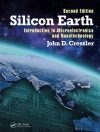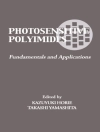Transportation remains one of the largest contributors to global carbon dioxide emissions with the majority of vehicles using fossil-based fuels such as gasoline and diesel. Therefore, alternatives that come from a renewable feedstock and create fewer carbon emissions are urgently needed. Biodiesel, an alternative to fossil-based diesel fuel, can be produced from renewable or waste feedstocks such as biomass, animal fats and industrial wastes making it much more sustainable. However, challenges remain in improving and refining the properties of biodiesel, developing production processes and choosing feedstocks with optimal sustainability.
Focusing on recent advances in the areas of feedstocks for biodiesel, production processes, and testing and enhancement of properties, Developments in Biodiesel provides a balance between academic and industrial viewpoints across a range of topics. It is an ideal reference for both academics and industrialists interested in sustainable energy, sustainable fuels and biomass/waste valorisation.
Daftar Isi
Revisiting the Field of Biodiesel: An Overview;Overview of Feedstock for Biodiesel Production;Edible Oil-based Feedstock;Non-edible Vegetable Oil: A Viable Alternative for Biodiesel Production;Industry Waste-based Feedstocks;Algae-based and Other Emerging Neat/Modified Feedstocks;Overview of Biodiesel Production Processes;Developments in Homogeneous Catalytic Processes;Development of Heterogeneous/Nanocatalysts in Biodiesel Production;Developments in Biocatalytic Processes for Biodiesel Production;Non-catalytic Processes for Biodiesel Production;Overview and Testing of Fuel Properties of Biodiesel;Blending Strategies and Properties of Biodiesel;Organic/Natural Additives for Biodiesel;Inorganic and Nanoadditives for Biodiesel;Computational Approaches to Biodiesel Production Process and Optimization: Neem Oil Methyl Esters as an Example
Tentang Penulis
Dr R. Geetha Balakrishna obtained her Ph D in 2005 and worked in various capacities from Lecturer to Professor in fewer than a couple of Universities in Bangalore, India. She is now a Full-Professor and Director of Centre for Nano and Material Sciences, Jain (Deemed-to-be) University, India. Her research involves biofuel, photovoltaics and sensing applications. She is one of the founding directors and CEO of a start-up firm Green Chem Nano Pvt. Ltd, which focuses on the biodiesel technologies. She is a recipient of Nehru-Fulbright Award’17 for Academic and Professional Excellence, Dr Kalpana Chawla Award’20 by Govt. of Karnataka, India, and UAE Global Water Award’22 for her innovation in atmospheric water-harvesting technology.
Dr. Sakar Mohan obtained his Ph D in 2015. Later, he moved to Laval University, Canada for his postdoctoral research. He joined as an Assistant Professor in Centre for Nano and Material Sciences, Jain (Deemed-to-be) University, India in 2017. He is one of the founding directors of the start-up firm Green Chem Nano Pvt. Ltd. His research includes photocatalysis, biofuel and membrane separation.
Dr Tamer Zaki obtained his Ph D in 2002 and worked in various capacities from Assistant Researcher to Professor in Egyptian Petroleum Research Institute (ERPI), Egypt. He is now a Full-Professor and Supervisor for the catalyst characterization laboratory in EPRI and Assistant of Chairman of the Board of Directors of EPRI-Central Laboratories. His research interests include the development of nanostructured heterogeneous catalysts and related applications in biofuel, petroleum refining, natural gas processing and petrochemical reactions.












